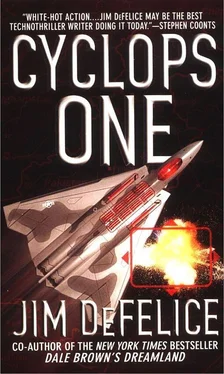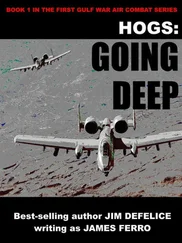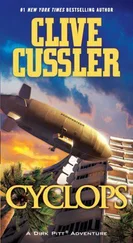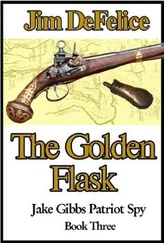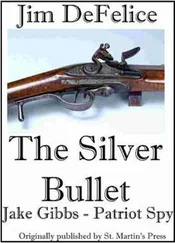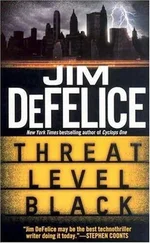Timmy proposed to fill that time with a song.
“What sort of song?”
“I was thinking something by Limp Bizkit,” joked the wingman.
“If you try that, I’m going to order silent com,” said Howe.
“Don’t you think there ought to be an M3 hookup in these?” asked Timmy. “Actually, a karaoke rig. That’s what we need. I’m going to talk to Firenze about that when we get back.”
Laughing in spite of himself, Howe was just about to suggest that Timmy sing “Old MacDonald” when the AWACS supervisor radioed, requesting that he switch to a new frequency. The moment he keyed in, an Army lieutenant colonel at the Pentagon introduced himself by saying they had found their man.
“Which man are we talking about?”
“An NSC staffer was in the helicopter your plane shot down at the start of the Indian operation,” said the colonel, who was transmitting from the Tank through a satellite hookup. “He’s alive on the ground nearby.”
“How nearby?”
Howe listened as the colonel explained the situation. The location was very close to where they had taken out the helicopters in the Kashmir border area, reachable via a short though significant detour from their planned flight path.
“That’s not a pretty place,” said Howe. “My briefers this morning were talking about guerrilla conflicts all through that region.”
“That’s why we need him located and rescued ASAP,” said the Army colonel. “He’s a valuable commodity.”
So are we all, thought Howe, though he didn’t say it.
McIntyre stared at the door as it cracked open slowly. The guns were next to him on the desk, but he made no move to get them. He just stared as the door opened.
A teenager took a step inside. He swung a bucket before him, setting it down on the floor and starting to reach back for something outside before seeing McIntyre across from him in front of the desk.
He froze, and for a second they stared at each other, neither able to react.
It was the Indian who moved first. He fell backward out of the building, scrambling away as the door closed. McIntyre followed, still holding the phone in one hand. He cracked open the door, crouching at first, worried that there would be more people outside.
The boy had disappeared. No one else was there as he gradually opened the door wider and wider.
“McIntyre — what the hell’s going on?” Brott was asking when McIntyre closed the door and brought the phone back up to his ear.
When he told Brott about the kid, the aide said he should have shot him.
“Yeah,” answered McIntyre. “Do you know where I am?”
“Listen, you’re going to have to go somewhere else now. Do you understand? Is there a place back where you were that you can hide, near the first place you called from?”
“No,” said McIntyre.
“Can you leave the phone on?”
“I’m worried about the battery,” he said, glancing at it.
“Get to a safe place and call again,” said Brott. “We have assets en route, but it’s going to take a while. It may take a long while.”
A safe place. McIntyre wanted to laugh. Instead he just looked at the phone.
He couldn’t kill a kid who had nothing to do with him, who was just coming to wash the floor or the windows, for chrissakes.
“Yeah, I’ll call,” he said abruptly, then pushed the End button, got his guns, and went outside.
Howe spotted the wreckage of the helicopter strewn across the side of a slope, then began arcing north-westward in the direction of the GPS coordinates he’d been given. He needed to strike a balance: go slow and low enough to be seen by McIntyre, and yet somehow not be slow and low enough to be nailed by some joker with a shoulder-launched SAM.
Couldn’t be done. He had to risk a good portion of his butt to save McIntyre’s.
Not that he wasn’t willing to make the trade. He just wanted to understand the equation.
“One, yeah, I see the debris,” said Timmy. “Uh, you got maybe two feet over that ridge, boss.”
“Come on, now, I have five at least,” said Howe, who was actually close to a thousand feet over the peak that rose two miles off to his left. Howe pushed toward a black-topped road that wound up one of the hillsides, trying to compare it with what the Pentagon colonel had described, which of course was itself second- or thirdhand.
“Got a couple of army vehicles back here,” said Timmy. “Uh, two transports, armored car or something in front — near that city.”
“That’s a city?” asked Howe. He began banking to get lower and take a closer look, putting his nose up slightly to make sure he didn’t run into anything while his attention was directed toward the ground.
“Not all of us were born in New York, you know.”
“Timmy, that’s not even a city in North Dakota.”
The radar synthesized a small downtown area of a dozen buildings. The three vehicles Timmy had spotted were moving northward on the road, parallel to the border. Howe looked down through the canopy as he passed, but he was roughly five thousand feet above them and moving close to four hundred knots; he could tell they were vehicles, and thought the lead one had a gun at the top, but there was no way he was reading license plates from here. He took the Velociraptor along the road, looking for more activity. Timmy, studying the passive IR plot from the sensor suite, nudged to his left when he got a flare of something.
“Fire, I think,” explained the wingman.
As they turned and started a fresh track, the Pakistani radar over the border — the one that had been targeted by the Indians to start all this — turned itself on.
“Somebody’s watching,” said Timmy.
“Roger that,” said Howe.
“Yeah, but I’d like to go pee on him anyway.”
“Eyes on the prize.” None of the radars associated with SAMs had come up. The Pakistanis had given the Pentagon a blanket assurance yesterday that no U.S. planes would be targeted, though for security reasons they had not been alerted to the Cyclops One search. The Indians had not agreed to permit “spy flights” over their territory.
The Osprey checked in; they were now thirty minutes away at top speed. He went over his game plan with Howe: If their pickup didn’t make his call back on time, they were going to try to drop the SF team near the last phone-in point so they could have a look around. They’d play it by ear from there. An MC-130 was being launched to stand by to refuel the Osprey if things took too long; a second assault team was being rounded up in Kabul, though launching it would take at least two or three hours.
Howe and Timmy would have to start thinking about a refuel soon as well.
“Couple of, uh, Land Rovers maybe,” said Timmy. “You got ’em?”
Howe glanced at his tactical screen, where Timmy had cursored them for him. They were moving across an east — west roadway into a village at the southwest, ten miles away from the crashed helicopter.
“You sure those are military?” Howe asked.
“No.”
“I’m going to get down there and get close,” he told his wingman. “Hang tough.”
“Only way to go. Got your six.”
Howe dipped his wing. He came over the road at three thousand feet — not counting the nine thousand or so holding the tar up in the mountains.
There were definitely troops in the back of the trucks. As Howe began to pull up he saw a glint of something. He went immediately for the defensive flares, accelerating away.
“They shoot at you?” Timmy’s voice was practically a shout.
“You tell me,” said Howe.
“Didn’t see anything.”
“Getting jumpy.” He pulled around to his left, angling in the direction of the road, trying to see where the troops were going. A puff of smoke erupted near a cluster of buildings that sat before a bend; the buildings looked like storefronts, with large colorful signs at the top. A pinprick of smoke fluttered across the other side of the bend, near a building. Howe saw movement, people running. Bingo.
Читать дальше
